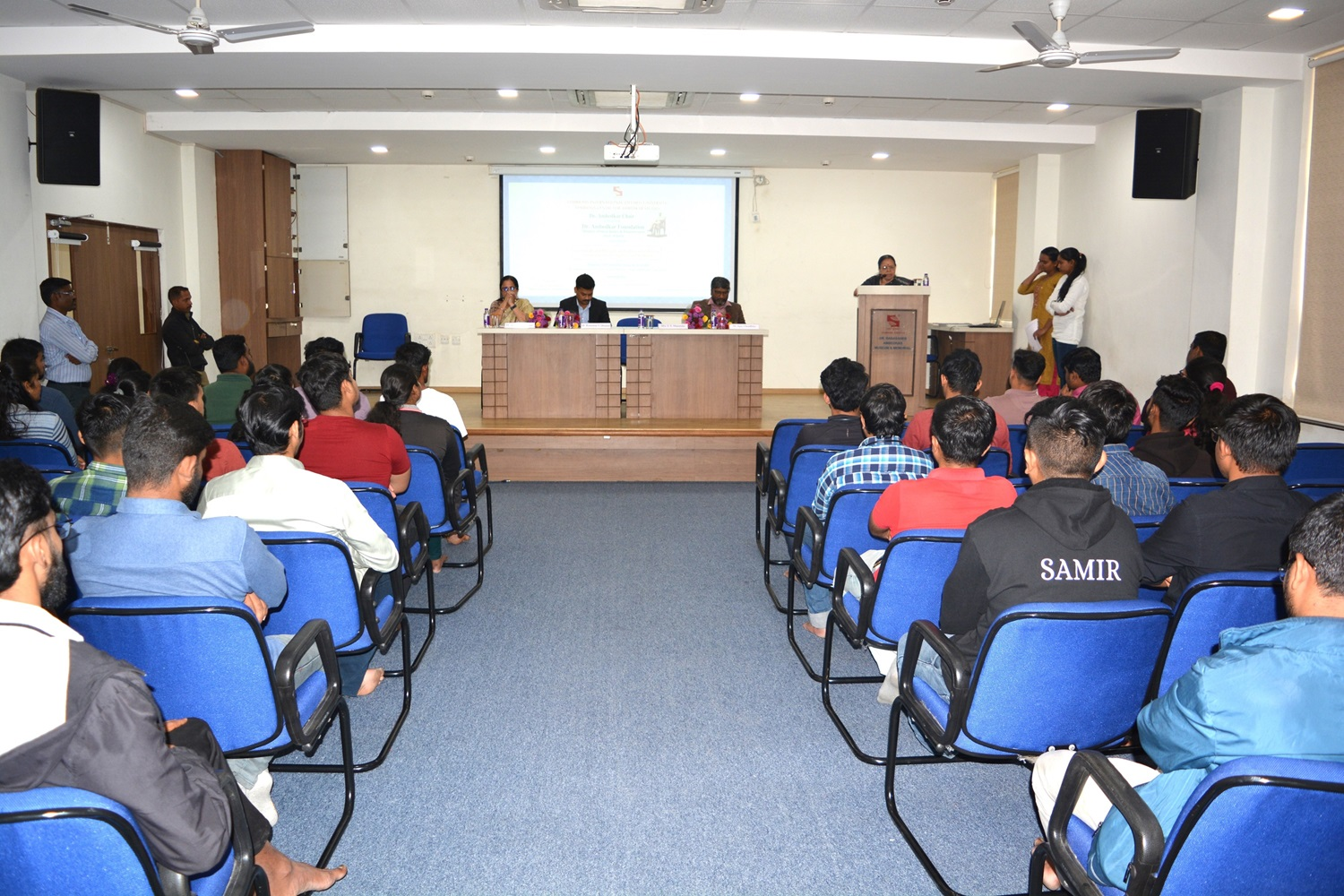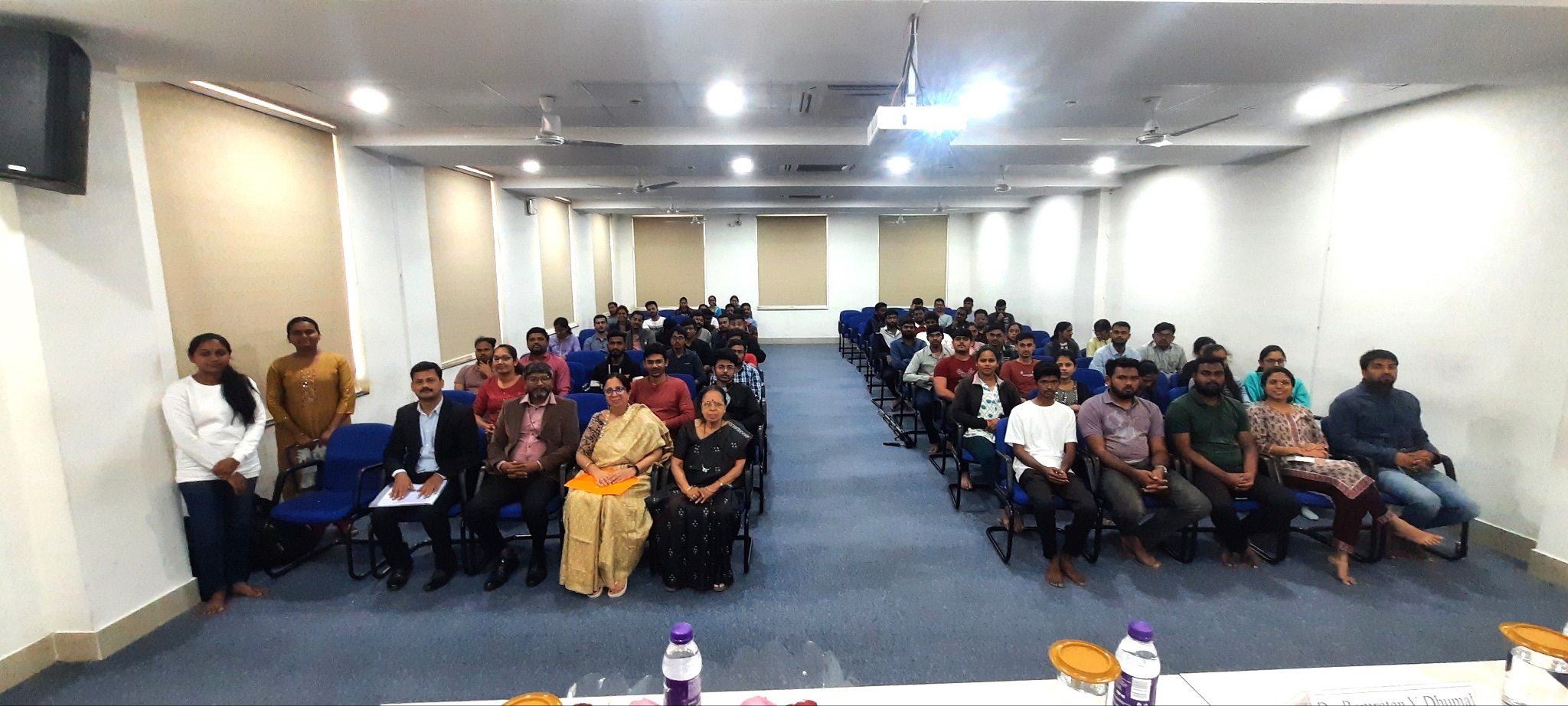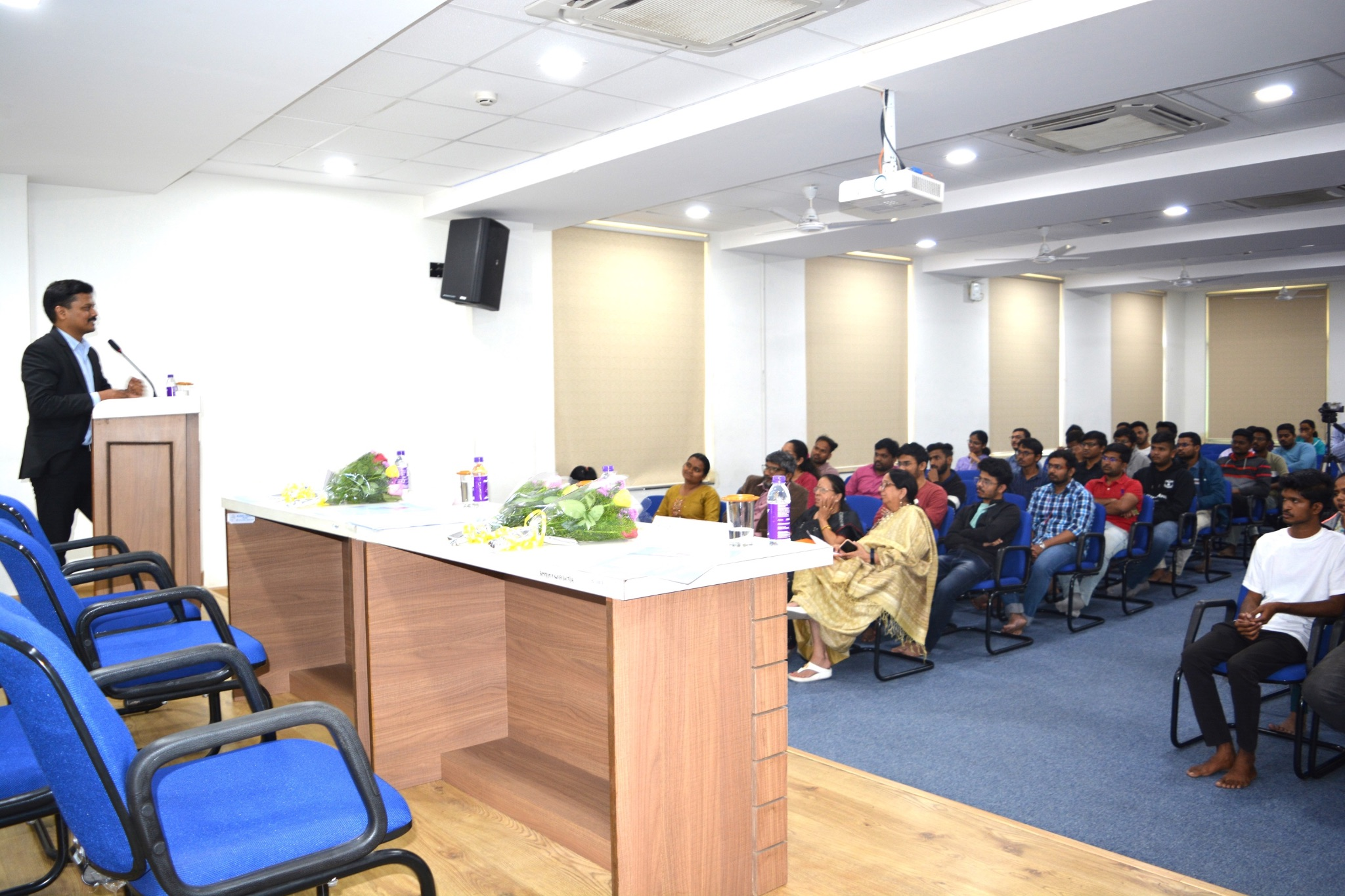A lecture was organized on 29th January 2024 by Dr Ambedkar,
Chair at the Dr Babasaheb Ambedkar Museum and Memorial, on
‘Constitutional Morality and Affirmative Action: Deconstructing
Perceptions and Realities’ by the Guest speaker Dr Ramratan V
Dhumal (Assistant Professor, Ajeenkya D Y Patil University,
Pune), Dr Ajay Choudhary, Chair Professor, Dr Ambedkar Chair,
presided over the session.
The other guests were
Prof. Jyoti Chandiramani
Dean, Faculty of HSS and Madam Sanjeevani Majumdar. The
programme started with reading the Preamble, after which
Sanjeevani Majumdar talked about Dr Ambedkar in the
Constitutional Assembly and his idea of constitutional morality.
Prof. Jyoti Chandiramani
shared her views on the overall and inclusive development that
needs to happen with the aim of SDGs. Dr. Ajay Choudhary talked
from the identity perspective, by which we are Indians First and
Last. To end, he invited Dr Ramratan V Dhumal for his lecture.
Dr Dhumal introduced the topic, its standfirst, and his
methodology to analyse it. He used a deconstructive methodology
to understand history, which followed the originalist
perspective without creating any complexities. Further, he
contextualises his talk in the present times.
He brings out the prophecies made during the Constitutional
Assembly Debates, which presumed that the Constitution would not
survive even a year; however, the Indian Republic is 75 years
old now. He referred to an article by Chicago Law School, “The
Lifespan of Written Constitution”, in relevance to the
Constitution of India, highlighting the building of its
foundations.
He talked about the speech of Dr Ambedkar on 4th November 1948
while presenting the first draft of the Constitution, where he
mentioned the ‘Form of Government’ and ‘Form of Constitution’
and highlighted the importance of having an accountable
government as far more critical than having a stable government.
The Constitution envisions an accountable government. Also, he
talked of three essential sections of the Preamble: the source
clause, the objective clause and the implementation clause,
which begins and ends with the people of India.
Dr Dhumal talked about Constitutional Morality and how it was
addressed during the time of Constitutional Assembly Debates and
in the post-1950 times through some landmark cases. He also
referred to the works of George Grote and why Dr Ambedkar felt
it necessary to invoke Grote during the Constitutional Assembly
Debates.
An important point that was put forward was that the
Constitution needs to be revered by all organs of the
government, including citizens. In addition, Grote’s point of a
free and peaceful government.
uding citizens. In addition, Grote’s point of a free and
peaceful government. He brought out the importance of
constitutional morality, such that even if a small opinionated
minority does not hold power to gain power, it holds enough
power to make the Constitution impracticable, and the form of
administration has a close connection with the form of the
Constitution. However, Grote does not talk about how the
Perversion of the Constitution is possible without changing the
form of administration.
This marks the importance of constitutional morality because it
is not a natural sentiment but needs to be cultivated. Dr Dhumal
brings out the writing of Dr Ambedkar, ‘States and Minorities’
from 1945-46, whereby he says there needs to be proper
entitlements we should give to all the communities in the
Constitution. Thus, he shifted to the use of constitutional
morality in the post-1956 time.
He shows the references of the ideas in cases like Keshvanand
Bharti Case 1973, S.P Gupta versus the Union of India or the
first Judges Transfer Case 1981, Navtaj Singh Johar versus Union
of India 2018 on de-criminalisation of homosexuality, Manoj
Narula versus Govt of India 2014 on the de-criminalisation of
politics in India, Joseph Shine versus Union of India, 2018,
which was about adultery, Young Lawyers’ Association versus
state of Kerala or the Sabarimala Case.
The speaker quoted Justice AP Shah from Delhi, High Court’s
judgment, para 86 of de-criminalisation of homosexuality – the
constitutional morality must outweigh the argument of public
morality even if it is the majority belief. From a different
judgment, he quotes the importance of constitutional morality
for the government, where the court equated constitutional
morality with good governance.
Subsequently, he questioned relying solely on constitutional
morality and not backing them with statutes and Law as
constitutional morality is not a coherent principle, and this
leaves the scope for discretions by which uniformity in the
implementation cannot be maintained. Subsequently, he connected
it with affirmative actions, which are evolving along with the
evolution of the Constitution.
He highlighted that the moment more people are brought within
the scope of affirmative action, more people associate
themselves with the Constitution, and they protect the ethos of
the Constitution. No political system can outrightly reject the
existence of the Constitution if citizens stand to defend their
Constitution. Thus, this enhances the legitimacy of the
Constitution.
His lecture was followed up by some questions, after which a
vote of thanks was given, and the programme ended with a picture
of the speaker and other guests with the students.





